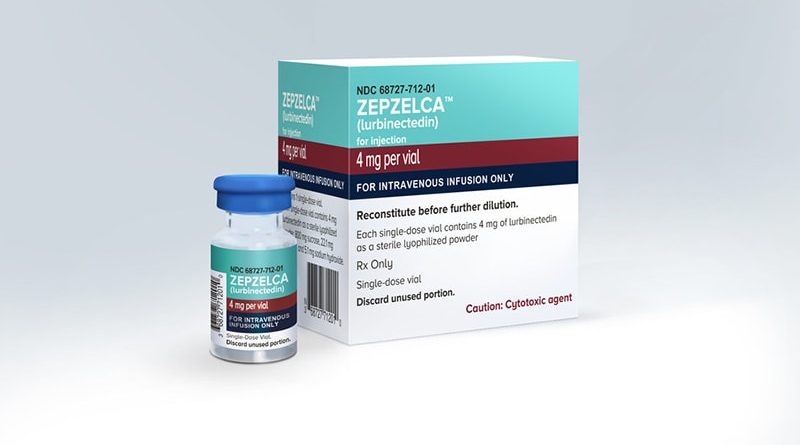Lurbinectedin Shows Effectiveness for Small-Cell Lung Cancer
CHICAGO — The LURBICLIN study has analyzed the real-world data of French patients with small-cell lung cancer (SCLC) who received lurbinectedin to assess the efficacy of this new second-line treatment. The results show that lurbinectedin is a wholly acceptable treatment option with seemingly greater efficacy than standard treatments, according to a poster that Nicolas Girard, MD, respiratory medicine specialist and coordinator of the Curie-Montsouris Chest Center in Paris, presented at the ASCO 2023 annual meeting.
SCLC is a condition with limited treatment options, and the decision about whether to administer a second-line treatment in the event of relapse is complex. No treatment route is specifically recommended, although several options are possible.
Lurbinectedin, a new medicinal product that was developed from a sea creature (see box), is one such option. It proved effective in relapsing small-cell cancer in a phase 2 study. These results led to fast-track approval by the FDA in 2020 and early-access use in France in the same year for adult patients with SCLC whose disease had worsened after platinum-based chemotherapy.
Led by Girard, alongside the French-language lung cancer group (the IFCT), the LURBICLIN study enrolled 312 patients overall. About 64% of participants were men, median age was 65 years, 72% of the population were PS0-1, 47% had brain metastases, and 58% had a previous history of immunotherapy.
Lurbinectedin was administered as second-line treatment in 44% of patients. Approximately 58% of participants were refractory to chemotherapy. Patients received a median of three cycles of lurbinectedin. Concurrent radiotherapy on metastases was delivered to 38% of patients.
The response rate was 22%, and the disease control rate was 38%. After a median follow-up of 20.8 months, median progression-free survival (PFS) and overall survival (OS) were 1.9 and 4.7 months, respectively. Six-month PFS and OS rates were 7% and 42%, respectively.
Performance status (PS) ≤ 2 and chemotherapy-free interval ≥ 90 days were associated with significantly longer OS (hazard ratio 0.71 and 0.58, respectively).
“By analyzing the real-world data of 312 patients in France who have received this medicinal product, we’re showing that lurbinectedin is a new treatment option for patients with small-cell lung cancer,” commented Girard.
About Lurbinectedin
Lurbinectedin (Zepzelca), also known as PM1183, is an analog of the marine compound ET-736 isolated from the sea squirt Ecteinascidia turbinata in which a hydrogen atom has been replaced by a methoxy group. It is a selective inhibitor of the oncogenic transcription programs on which many tumors particularly depend. Together with its effect on cancer cells, lurbinectedin inhibits oncogenic transcription in tumor-associated macrophages, downregulating the production of cytokines that are essential for the growth of the tumor.
This article was translated from the Medscape French Edition.
For more news, follow Medscape on Facebook, Twitter, Instagram, YouTube, and LinkedIn
Source: Read Full Article
